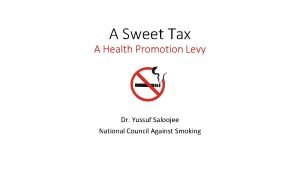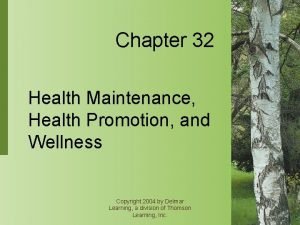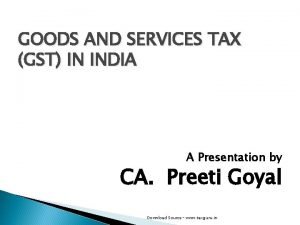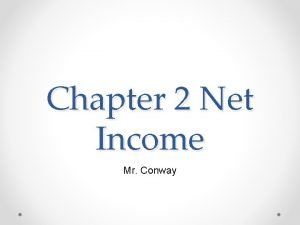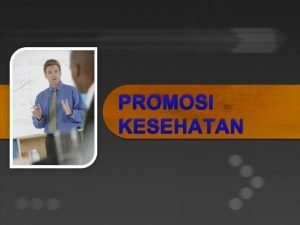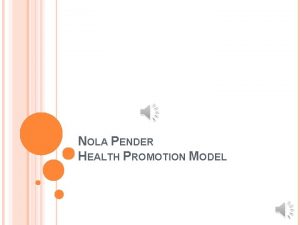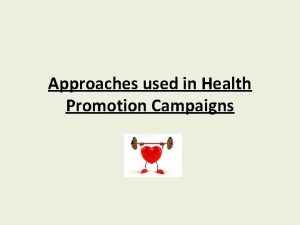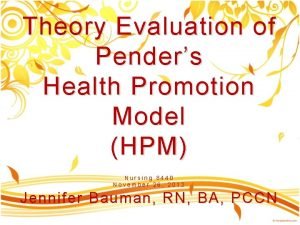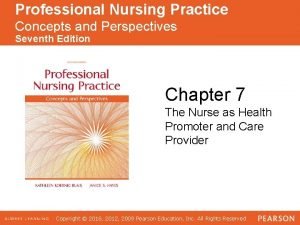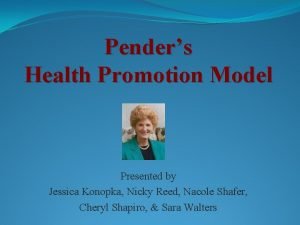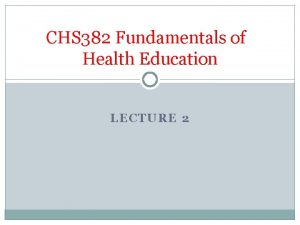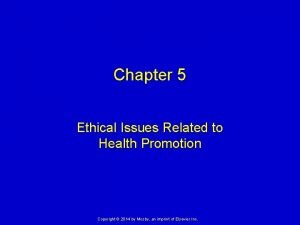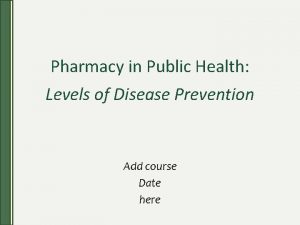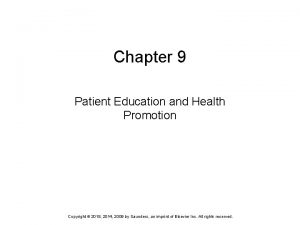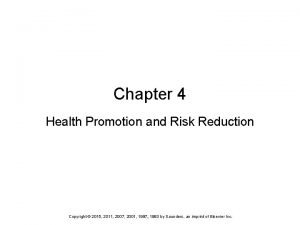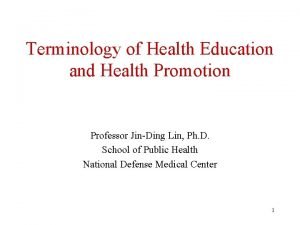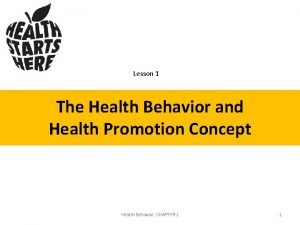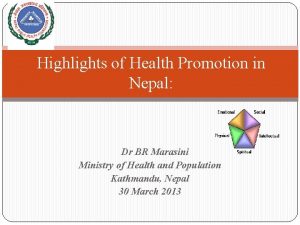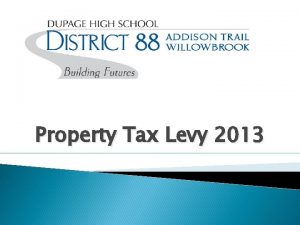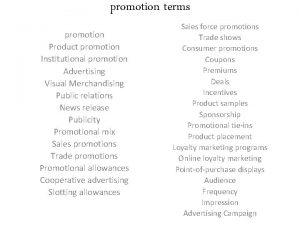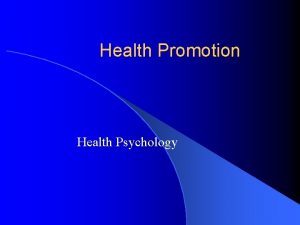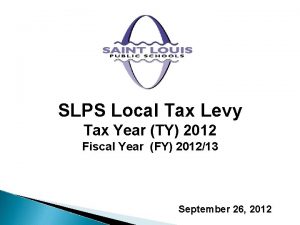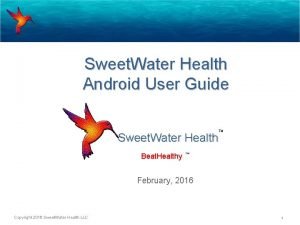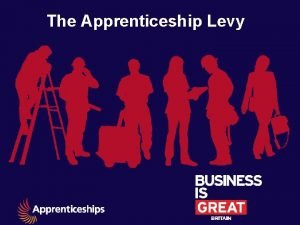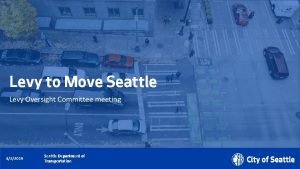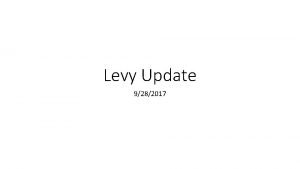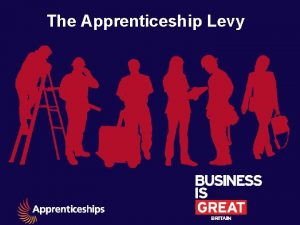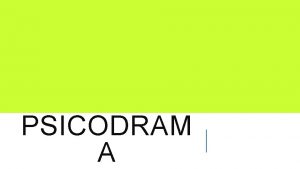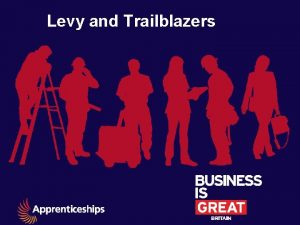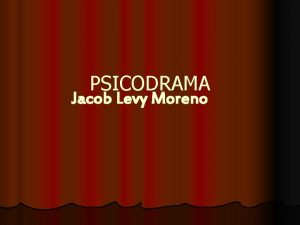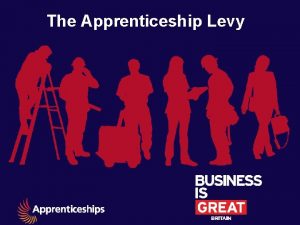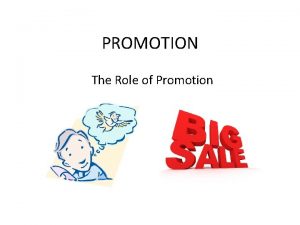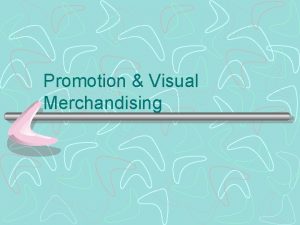A Sweet Tax A Health Promotion Levy Dr























- Slides: 23

A Sweet Tax A Health Promotion Levy Dr. Yussuf Saloojee National Council Against Smoking


Aims of Presentation • To briefly review the • need • rate • politics, and • use of the tax

Why a SSB tax? • Eating foods high in sugar causes weight gain. • Almost 40% of adults are overweight or obese. • In 2000, the MRC estimates that excess body weight caused 36 500 deaths in SA. • The Mc. Kinsey Global Institute estimate that global economic impact from obesity is about $2 trillion or 2. 8% of global GDP.

The Optimal Tax Level? • The NCAS suggests: • The tax rate be set at 3. 5 cents par gram of sugar; and • All sugar containing drinks be taxed at the same rate. A higher tax rate will be more effective and there is no rational for exemptions. Recommendation: The goal should be to reduce the number of people who are obese by 10% by 2020, with further targets set thereafter. This goal is already part of the NDo. H’s strategic plan for NCDs. This would establish a clear criterion for measuring progress, ensure transparency and provide certainty to industry.

Industry Opposition

Lyin King

The US Tobacco Industry - “an organized crime syndicate” Over the course of 50 years, the Defendants lied, misrepresented and deceived the American public… to make money with little, if any, regard for individual illness and suffering. Judge Gladys Kessler, 2006, Racketeer Influenced Corrupt Organization (RICO) Act

Sugar industry's secret documents echo tobacco tactics Sugar Association's intent to use science to defeat critics uncovered by dentist By Kelly Crowe, CBC News, Mar 08, 2013 • ”The [1976 industry] documents describe industry lobby efforts to sponsor scientific research, silence media reports critical of sugar, and block dietary guidelines to limit sugar consumption.

Coca-Cola’s secret influence on medical and science journalists A series of journalism conferences on obesity received covert funding from Coca-Cola. Paul Thacker investigates • Industry money was used to covertly influence journalists with the message that exercise is a bigger problem than sugar consumption in the obesity epidemic, documents obtained under freedom of information laws show. • BMJ 2017; 357: (Published 2017 April 05)

The Misuse of Economics



Job creation not job losses • Falling demand for tobacco does not mean a fall in total employment levels - money once spent on cigarettes would instead be spent on other goods and services generating new jobs(World Bank). • A switch from buying goods that are non-labour intensive to labour intensive ones creates jobs. • Non-smoking households typically spend more on education, food and utilities while smoking households spend more on alcohol in SA. (UCT study)

Chronic Disease & Poverty • Tobacco use worsens poverty. • Money spent on tobacco means there is less money to spend on other essentials like food. In 2008, a quarter of SA households spent an average of R 133 per month on tobacco (this is equal to 4% of the average monthly household budget). • Spending less on food, or education perpetuates inter-generational poverty. Children pay the price of adult smoking. • Ill health and long-term disability often leads to absenteeism from work and reduced family income. Getting treatment is also costly and increases out of pocket expenses for clinic attendance, etc.


The benefits of taxes also depend upon how money is used • Are we getting value for money on health expenditures?

Provision of health services to the population 18 Healthy Health Promotion Underfunded Risky behavior Diseased but not seeking care Sick and seek care Health Care system >95% of budget

Economics of Prevention Joint 2015 WHO/ WEF study estimates that: • The cost of implementing ‘best buy’ measures to prevent and treat NCDs in low-income countries is about US$ 1. 20 person per year. • The cost of not acting will be about $25 person a year in economic losses and millions of deaths over the next 15 years,

Health Promotion works: Thai. Health • Thai. Health receives an annual 2% levy from tobacco and alcohol: • 400% increase in ex-smokers from 2000 to 2009 • 12% drop in drinkers from 2004 to 2007 • 31% drop in traffic accidents between 2004 to 2009 • 10% drop in number of deaths through road accidents

Win, win Excise taxes on harmful products are a WIN, WIN for governments. WIN 1: The most effective method to reduce consumption. WIN 2: Government revenues increase. WIN 3: Funds can be used to promote health or replace a public harm with a public benefit.


 Sweet heavenly spirit
Sweet heavenly spirit Promotion levy
Promotion levy Difference between health education and health promotion
Difference between health education and health promotion Health promotion world health organization
Health promotion world health organization Kinesiology ucf catalog
Kinesiology ucf catalog Gst conclusion
Gst conclusion Roland purcell a technical writer
Roland purcell a technical writer Definisi terminology promosi kesehatan
Definisi terminology promosi kesehatan Nola pender health promotion model
Nola pender health promotion model Methods of health promotion
Methods of health promotion Health promotion approach
Health promotion approach Pender’s health promotion model
Pender’s health promotion model Professional nursing practice: concepts and perspectives
Professional nursing practice: concepts and perspectives Jessica konopka
Jessica konopka Health promotion emblem
Health promotion emblem Ethical issues in health promotion
Ethical issues in health promotion Health promotion and levels of disease prevention
Health promotion and levels of disease prevention Patient readiness to learn
Patient readiness to learn Health promotion and levels of disease prevention
Health promotion and levels of disease prevention Health promotion program in malaysia
Health promotion program in malaysia Caplan and holland model of health promotion
Caplan and holland model of health promotion Who health promotion glossary
Who health promotion glossary Ottawa charter of health promotion
Ottawa charter of health promotion Health promotion definition
Health promotion definition

